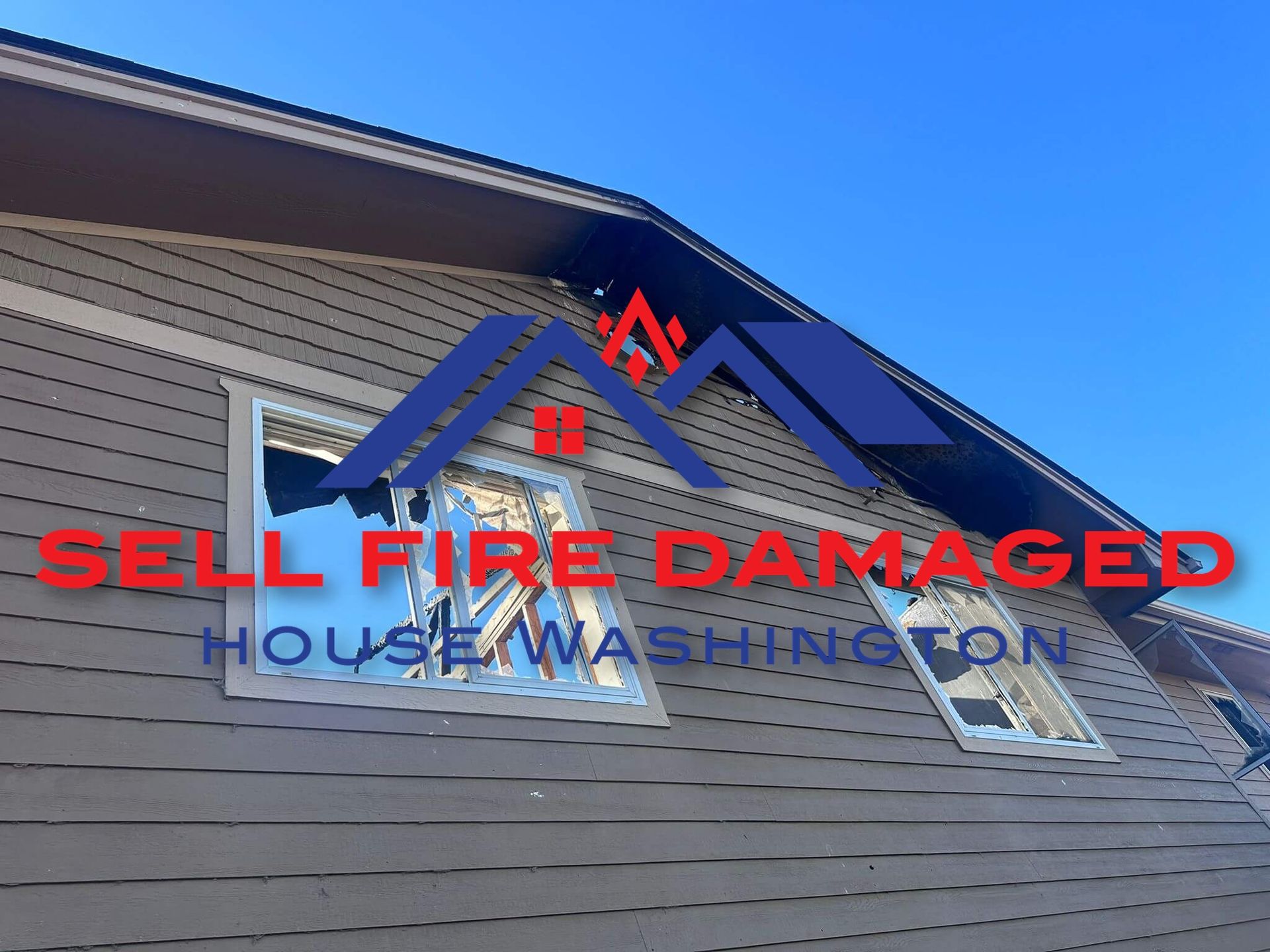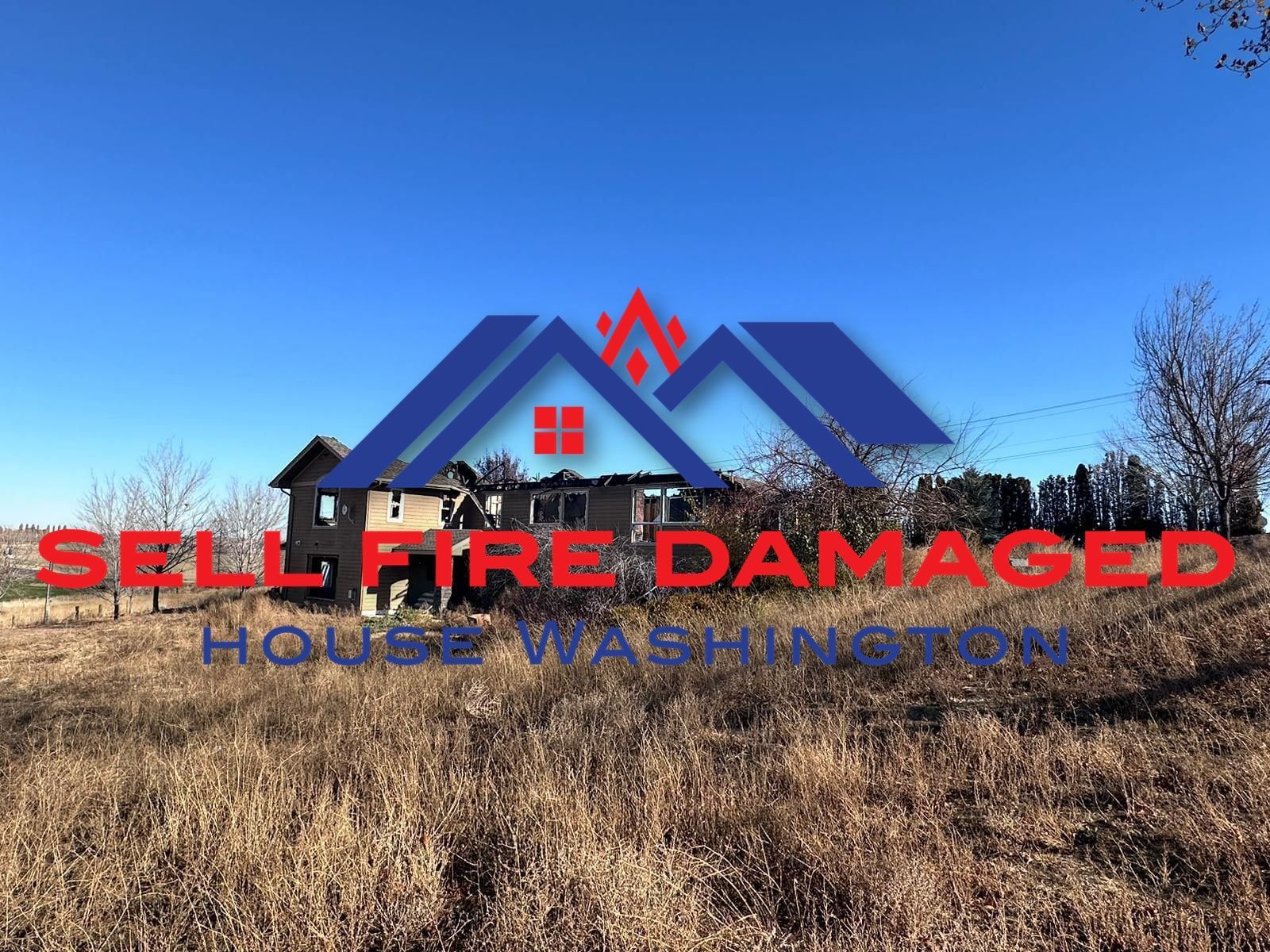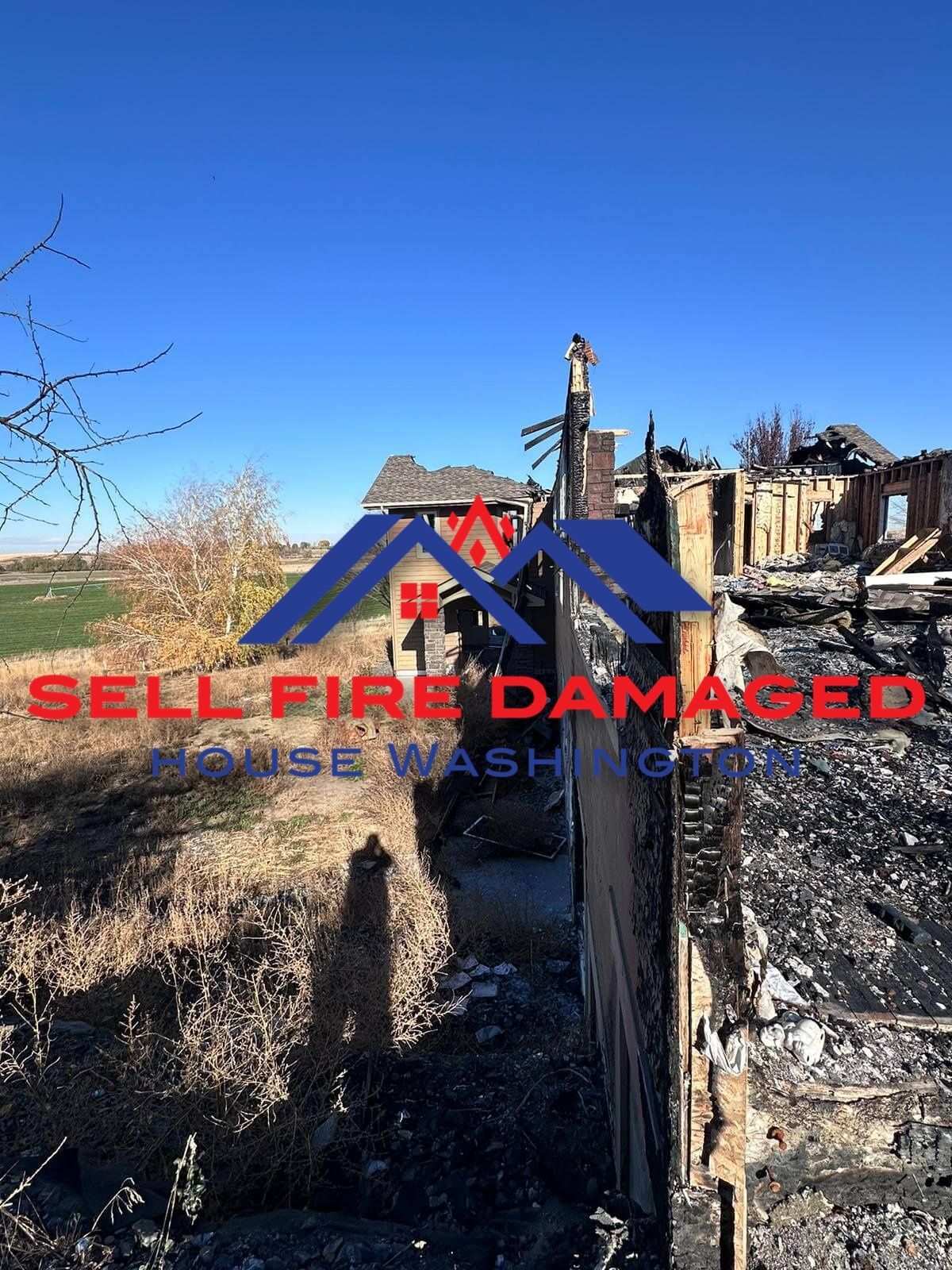What Is Your Landlord's Responsibility After A Fire In Washington?
Published on December 22nd, 2024
Lucas Sanders
AUTHOR
Free Offer Form
Anything can cause a fire — faulty wiring, candles, portable heaters.
An apartment fire is devastating to both tenants and a landlord. In such situations, a big question is: Who should be responsible?
Regardless, tenants have rights, and landlords have responsibilities after a fire.
You must know what a tenant's rights are so you can manage your losses. Depending on the situation, you may have to share the burden with your landlord or be entitled to compensation.
Below, we'll talk about the duties of a landlord after a fire.
Understanding the Duty of a Landlord In Washington
First, let's discuss the landlord's duties outside of an apartment fire. They can mostly be separated into two general categories: providing a safe environment for tenants and overseeing maintenance and repairs.
Legal Obligations
Landowners should comply with building codes and fire safety regulations — including other related obligations, such as disclosing fire damage during property sale even after they've repaired everything.
The landlord should also have insurance for the apartment.
However, this insurance doesn't necessarily cover your personal belongings. As such, you should also get renter's insurance to claim something in case of emergencies.
Duty of Care
Landlords should always assess the structure for any damage and make any necessary repairs immediately. Not doing so can fall under the landlord's negligence if accidents like fires happen because of it.
The landlord should install smoke alarms, ensure usable fire exits, and check if the electrical system is safe, among other things.
However, they're not legally required to provide smoke detectors or fire extinguishers unless it's stated in their contract.
Landowners should also provide temporary housing for tenants if disasters compromise the habitability of the rental property.
Impact of Rental Agreements
The terms of your rental agreement will affect your landlord's duties after a fire.
As such, check your lease agreement to see if it contains specific clauses for fire damage, insurance, and allocation of responsibilities.
You might even see clauses attempting to limit the landlord's liability for fire damage. However, rights and responsibilities established by local and state laws cannot be waived through a lease agreement.
Landlord Responsibility After Fire In Washington
Before discussing your landlord's duties after a fire, remember that for accidental fires caused by tenants, the responsibility shifts from the landlord to that tenant.
Whether they have insurance or not, they'll have to somehow provide the funds to cover the repair costs.
That being said, below are some of your landlord's responsibilities after apartment fires.
Repairing Structural Damage
If the apartment fire was because of the landlord's negligence, the cost of repairing fire damage falls on their shoulders.
Property owners should hire professionals to do the necessary repairs rather than trying to do it themselves — especially since a rental property fire is often more extensive than surface damage.
Once all the damage has been fixed, the landlord should have their apartment reinspected.
There should be an assurance that the cause of the fire was addressed. So, if it was an electrical wiring problem caused by outdated systems, a new electrical system should ideally be in place.
Then there are precautions against future fires. Installing smoke detectors and providing fire extinguishers aren't legally required by law, but they're also good to have.
However, you can't always hold the landlord responsible for repairing minor damage caused by apartment fires — like smoke-damaged wallpaper.
Providing Temporary Accommodation
Another part of landlord responsibilities is providing temporary accommodation at a hotel or apartment.
They should be responsible for arranging and covering the cost of temporary housing. On top of that, they must communicate with their tenants.
Tenants should be informed of the situation, the expected duration of the repairs, and the arrangements for temporary accommodation while the fire department has declared the apartment uninhabitable.
Depending on the arrangements, tenants may still need to pay rent at their lease rate. But in some cases, it may be reduced or completely eliminated for the time being.
Dealing with Lost Possessions
The cause of the fire will determine who should be responsible for dealing with personal property.
If the fire was caused by the landlord's negligence, it should be part of the tenant's rights to sue the landlord for the cost of those belongings.
Landowners can ask the tenants for a list of damaged and lost possessions to help assess potential liability and insurance claims.
However, if the apartment fire was caused by something outside the landlord's control (such as the tenant's negligence), then the tenants will have to replace their belongings themselves.
The Role of Renters Insurance In Washington
When landlord negligence causes property damage (like apartment fires), they'll be responsible for the costs.
However, tenants have insurance that can help them in this situation — whether for replacing personal possessions or protecting them from legal consequences.
Insurance Coverage for Tenants
Renters insurance can cover some things that landlords insurance won't. The most important aspect of a tenant's insurance is that it covers personal belongings.
So, in the case of a covered disaster like an apartment fire, the insurance company takes on the cost of replacing or repairing damaged and destroyed items like electronics and furniture.
The renter's policy may also cover medical bills and lost wages.
Having liability insurance also protects tenants from legal and financial consequences if they are found responsible for the fire.
Some policies also cover a tenant's belongings even when they are not on the rental property. This means that if personal property is stolen, damaged, or lost while outside the rental unit, the insurance company may still pay for it.
Landlord's Insurance Coverage
Many landlords have good insurance coverage to get the necessary funds to repair their property in cases of covered disasters. There are several things a landlord's insurance should ideally cover.
- Dwelling coverage - This covers damage to the apartment itself, including repairs to the structural elements, roofing, and walls.
- Liability coverage - This protects landowners from legal claims or expenses if a renter or visitor is injured while on the property and sues for damages.
- Loss of rental income - Some policies cover the loss of rental income while the apartment undergoes repairs.
Fire damage coverage - As the name implies, this covers damage caused by fire (including mold, water, soot, and smoke damage).
How State Laws Affect Landlord's Responsibilities In Washington

Landlord-tenant laws vary across the United States, and understanding these state-specific regulations is essential whether you're renting or a landlord.
Below are some state laws in Massachusetts, Illinois, and Texas.
Massachusetts: Key Regulations and Laws
Massachusetts has strict security deposit laws since landowners must hold them in a separate interest-bearing account. They should also return the deposit (with interest) within 30 days after the renter moves out.
Some parts of Massachusetts also have rent control laws that contain rent increase restrictions.
Landlords should give at least 48 hours' notice before entering the rental property for non-emergency reasons.
Illinois: What to Know about The State Law
Like Massachusetts, Illinois landlords return a tenant's security deposit with interest within 30 days after the renter moves out. This should come with an itemized list of a reasonable amount of deductions if they won't receive the full deposit.
There are also no statewide laws on rent control, but some municipalities can have their own regulations.
However, statewide laws prevent landlords from retaliating against tenants who assert their rights — such as filing complaints, requesting repairs, or participating in tenant organizations.
Texas: Understanding Landlord-Tenant Laws in Texas
Texas is quite free when it comes to landlord-tenant laws.
For one, landowners are not required to hold security deposits in a separate account. However, they must return the deposit within 30 days and provide an itemized list of a reasonable amount of deductions.
There's no statewide rent control, allowing landlords more flexibility in setting rental rates.
The law is also generally pro-landlord regarding lease agreements since landlords have significant leeway in drafting rental agreements.
Expert Advice and Legal Opinions In Washington
Landlord-tenant relationships and property management can be tricky — especially since legal problems can arise at any time. As such, it's important to seek expert advice and legal counsel.
Recommendations for Landlords
The best way to avoid trouble with the law is to be a good property manager. Here's how:
- Establish a relationship with a real estate attorney to help you address legal matters.
- Don't use generic online templates when formulating lease agreements. Instead, ask your attorney for help making your own that reflects your needs and local regulations. Regularly update it to ensure it reflects your present situation.
- Screen tenants (which can include credit checks, criminal background checks, and reference checks).
- Familiarize yourself with the eviction procedures in your jurisdiction, and consult with your lawyer before initiating an eviction.
- If a dispute arises with a renter, consult your lawyer before taking action.
- Ensure that your rental practices comply with fair housing laws and regulations.
- Maintain thorough and organized records of all interactions with tenants, financial transactions, and property maintenance since they can be important in cases of legal disputes.
Seek Legal Advice
Having a good relationship with a real estate attorney can help you understand complex laws, mitigate legal risks, resolve conflicts, and review contracts.
They'll ensure that you stay well within the boundaries of the law.

Frequently Asked Questions
Installing smoke alarms, covering relocation costs, and ensuring there's no faulty wiring are just some examples of landlord responsibilities after a fire.
If you still have more questions about who you should pay for fire damage, we've answered some below.
Who Is Responsible for Damage to Personal Belongings in a Fire?
Whoever is responsible for the apartment fire will also be responsible for damage to personal belongings.
So, if the fire is because of landlord negligence, you can sue them for personal property damage. However, that will be the tenant's responsibility if they cause the fire.
Either way, the guilty party can start a claim process with their insurance company to cover the costs.
Can a Landlord Evict a Tenant After a Fire Incident?
No, a landlord can't evict a tenant after a fire incident if the tenant isn't responsible for the fire. Instead, you should hold the landlord responsible for looking for accommodations for the dislocated renters and repairing property damage.
However, if the renter caused the fire, they can be expelled from the property. If not, the renter can't refuse to continue rental payments, and they should also help cover the costs of repairing the apartment.
Does a Landlord Have to Provide Alternate Accommodation After a Fire?
Yes, a landlord should provide temporary accommodations or other necessary arrangements after a fire while the damaged unit is being repaired.
They should also maintain good communication regarding the situation and an estimated timeline for repairs.
Can a Tenant Break the Lease After a Fire?
If the apartment fire has rendered the unit uninhabitable, a renter may be able to break the lease. However, this ultimately depends on their contract.
If the apartment is only temporarily uninhabitable, you might not be able to terminate your lease.
If the contract doesn't mention termination after a disaster, you might still be able to do so if the apartment is a total loss.
However, whether or not an apartment is a total loss or not depends on the insurance adjuster rather than the owner.
What Should a Tenant Do After a Fire in Their Rented Apartment?
There are several things that tenants should do after a fire occurs:
- Make your own investigation and document the damage, which can help when you claim insurance later on.
- Contact your insurance company and inform them about what happened.
- Review your lease to understand what's expected of both you and your landlord.
- Consult legal professionals or tenant advocacy groups to further understand your rights and responsibilities, especially if you're facing disputes or uncertainties.
Conclusion
Whoever commits apartment fires negligence should be the one to shoulder the financial burden of repairing the property damaged.
Landlord negligence (such as overlooking faulty wiring and lack of fire exits) means they'll be held responsible.
However, if a renter is deemed negligent, they must share the responsibility. They won't be able to stop paying rent and will also have to pay for other expenses to help repair the fire damage.
As such, both the landowner and the renter need to have good insurance coverage so they won't have to pay out-of-pocket in case of a fire.
New Paragraph


